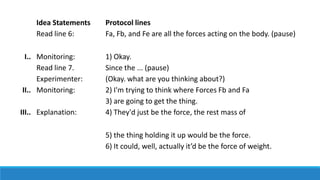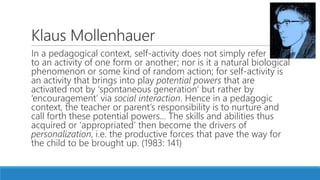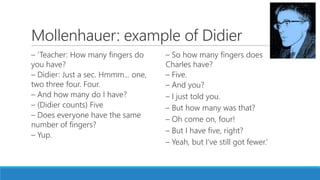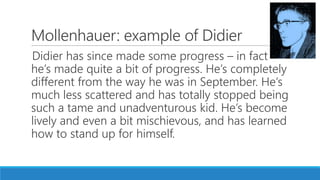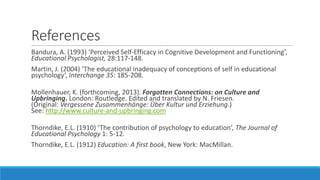1) John Dewey and Edward Thorndike had differing views on the self and education in the late 19th/early 20th century. Dewey saw the self as a connecting activity, while Thorndike viewed consciousness and will as unimportant compared to instinct and habit.
2) Later, Albert Bandura emphasized the role of self-processes and self-efficacy beliefs in mediating environmental influences and agency. Klaus Mollenhauer also discussed the importance of teacher nurturing to call forth a child's potential powers and skills for personal development.
3) Studies by Chi et al. found that good students generate self-explanations to guide their understanding, resulting in example-independent knowledge.
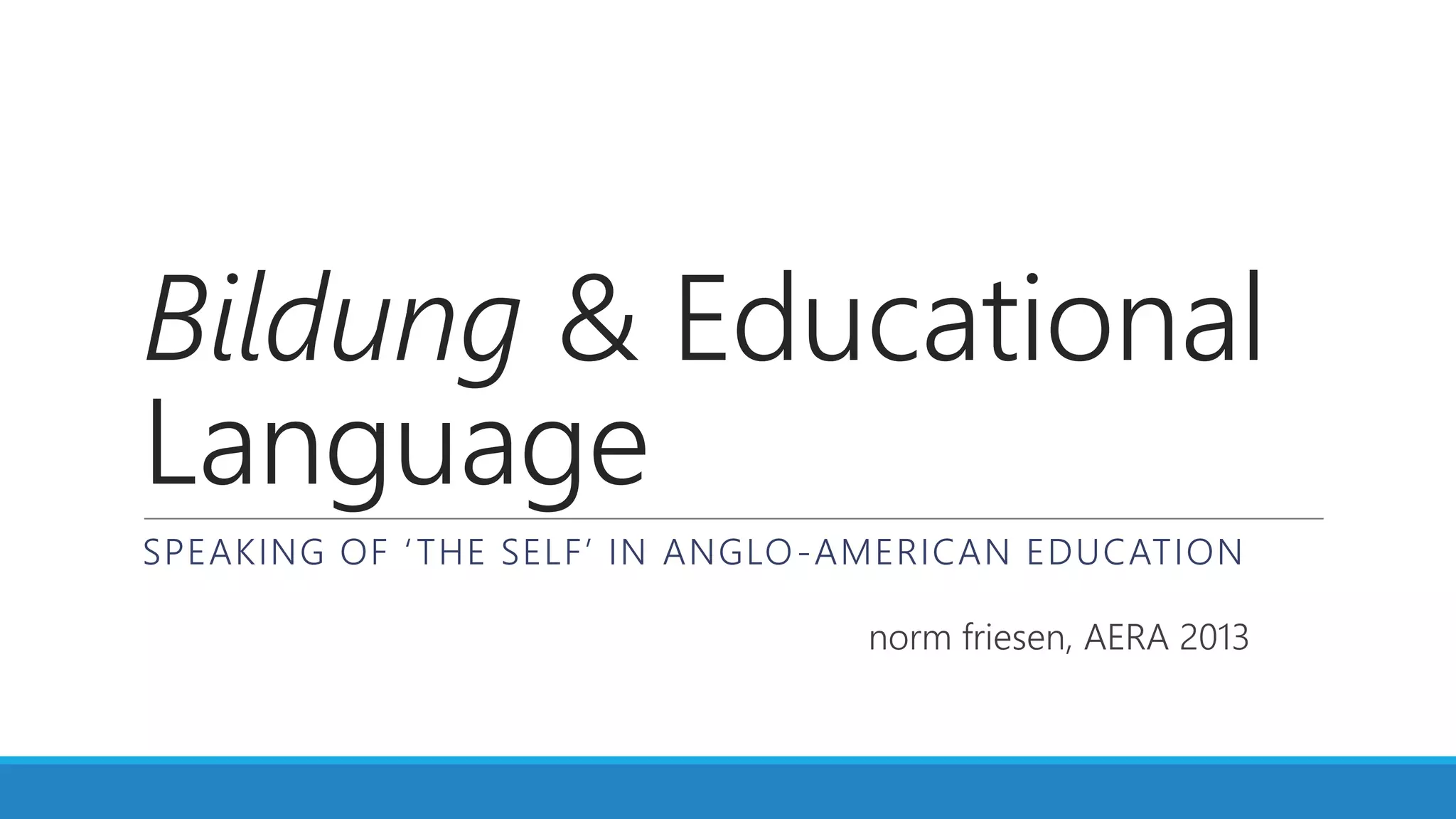
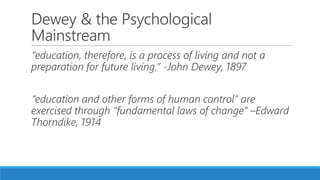
![Dewey: Psychology (1887)
The self which is the object of intuition is not an
object existing ready made, and needing only to have
consciousness turned to it, as towards other objects, to
be known like them as a separate object... The self is
[instead] a connecting, relating activity, and hence is a
real unity, one which unites into a whole all the various
elements and members of our knowledge. (Dewey 1887:
210)](https://image.slidesharecdn.com/bildungeducationallanguage1-130429185659-phpapp01/85/Bildung-educational-language-speaking-of-the-self-AERA-2013-3-320.jpg)
![Self-Activity- School & Society
the instinctive, impulsive attitudes and
activities of the child … [the] numberless
spontaneous activities of children, plays,
games, mimic efforts, even the apparently
meaningless motions of infants… are the
foundation-stones of educational method.
(112)](https://image.slidesharecdn.com/bildungeducationallanguage1-130429185659-phpapp01/85/Bildung-educational-language-speaking-of-the-self-AERA-2013-4-320.jpg)
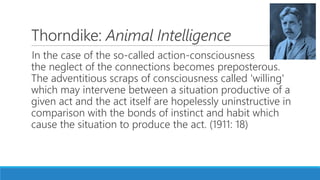
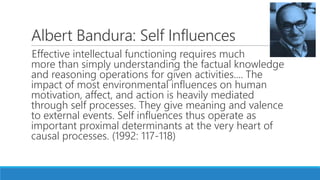
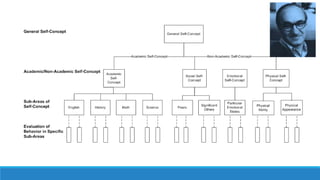
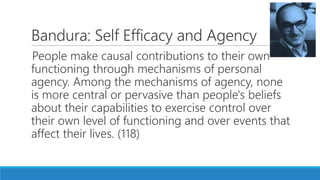
![Self-Explanation
We find that ‘Good’ students learn with
understanding: They generate many explanations
…[and] these self-explanations are guided by
accurate monitoring of their own understanding
and misunderstanding. Such learning results in
example-independent knowledge and in a better
understanding. (Chi et al 1989: 145)](https://image.slidesharecdn.com/bildungeducationallanguage1-130429185659-phpapp01/85/Bildung-educational-language-speaking-of-the-self-AERA-2013-9-320.jpg)
